EXTREME POETRY
SOUTH ASIA ACROSS THE DISCIPLINES
SOUTH ASIA ACROSS THE DISCIPLINES
EDITED BY DIPESH CHAKRABARTY, SHELDON POLLOCK,
AND SANJAY SUBRAHMANYAM
Funded by a grant from the Andrew W. Mellon Foundation and jointly published by the University of California Press, the University of Chicago Press, and Columbia University Press
Extreme Poetry: The South Asian Movement of SimultaneousNarration by Yigal Bronner (Columbia)
The Social Space of Language: Vernacular Culture in BritishColonial Punjab by Farina Mir (California)
Unifying Hinduism: The Philosophy of Vijnanabhiksu in IndianIntellectual History by Andrew J. Nicholson (Columbia)
Everyday Healing: Hindus and Others in an AmbiguouslyIslamic Place by Carla Bellamy (California)
South Asia Across the Disciplines is a series devoted to publishing first books across a wide range of South Asian studies, including art, history, philology or textual studies, philosophy, religion, and the interpretive social sciences. Series authors all share the goal of opening up new archives and suggesting new methods and approaches, while demonstrating that South Asian scholarship can be at once deep in expertise and broad in appeal.
EXTREME POETRY
THE SOUTH ASIAN MOVEMENT
OF SIMULTANEOUS NARRATION
Yigal Bronner
COLUMBIA UNIVERSITY PRESS NEW YORK
Columbia University Press
Publishers Since 1893
New York Chichester, West Sussex
cup.columbia.edu
Copyright 2010 Columbia University Press
All rights reserved
E-ISBN 978-0-231-52529-9
Library of Congress Cataloging-in-Publication Data
Bronner, Yigal.
Extreme poetry : the South Asian movement of simultaneous narration / Yigal Bronner.
p. cm.(South Asia across the disciplines)
Includes bibliographical references and index.
ISBN 978-0-231-15160-3 (cloth : alk. paper)ISBN 978-0-231-52529-9 (electronic)
1. Sanskrit poetryHistory and criticism. 2. Puns and punning in literature.
I. Title. II. Series.
PK2916.B72 2010
891'.21009dc22 2009028171
A Columbia University Press E-book.
CUP would be pleased to hear about your reading experience with this e-book at .
References to Internet Web sites (URLs) were accurate at the time of writing. Neither the author nor Columbia University Press is responsible for URLs that may have expired or changed since the manuscript was prepared.
For my parents,
Dina and Fred Bronner
do rat sabad jis kavit me na hoi
do rat sabad bj rjhe na koi
A poem that doesnt have
Dual-meaning words,
Such a poem does not
Attract anyone at all
A poem without
Words of two senses.
Manav Kadam Ro Padam Ro of Fahr-e Dn Ni

m, p. 133, translation by Shamsur Rahman Faruqi
CONTENTS
[2] EXPERIMENTING WITH LEA
IN SUBANDHUS PROSE LAB
[3] THE DISGUISE OF LANGUAGE:
LEA ENTERS THE PLOT
[4] AIMING AT TWO TARGETS:
THE EARLY ATTEMPTS
[5] BRINGING THE GANGES TO THE OCEAN:
KAVIRAJ AND THE APEX OF BITEXTUALITY
FIGURES
The Svayamvara of Damayanti/Damayanti Carried to the marriage choice
TABLES
T HIS BOOK was a long time in the making, and along the way I have incurred many debts. It is my pleasant duty to thank all those who helped me in the process of researching, writing, and editing it and bringing it into its current shape. First and foremost, I wish to thank my two lifelong teachers: Sheldon Pollock, who encouraged, facilitated, and immensely enriched my work on this project in its many incarnations; and David Shulman, who introduced me to the field of Sanskrit poetry and poetics and who has offered endless support and invaluable feedback in the process of completing this book. My debt to these two men and their intellectual and personal generosity would be impossible to repay.
For their guidance, patience, and generosity I am grateful to many other teachers as well. These include H. V. Nagaraja Rao in Mysore, as well as N. R. Bhatt, K. Srinivasan, and the late S. S. Janaki in Chennai. Although they were never officially my teachers, Lawrence McCrea and Gary Tubb have taught me a great deal, and their comments on this book as it evolved were simply priceless. Special thanks are also due to V. Narayana Rao and Vimala Katikaneni, who, together with David Shulman, helped me with the Telugu materials, and my colleague Sascha Ebeling, who enriched my understanding of Tamil lesas. I am also indebted to Steven Collins and Wendy Doniger, my former professors and now colleagues, and to the many colleagues at the University of Chicago who offered crucial intellectual and moral support. Finally, I wish to convey deep gratitude to my beloved and much-missed Tamil teacher, Norman Cutler, who died prematurely in 2002.
Many people helped me in the process of gathering materials. In particular, I am grateful to James Nye, Chief Bibliographer for South Asia at Chicagos amazing Regenstein Library; Dr. V. Kameswari, Hema Varadarajan, and the entire staff of the Kuppuswami Research Institute in Chennai; Professor Saroja Bhate in Pune; Dr. E. R. Ramabai and Dr. M. Visalakshi at the University of Madras and the New Catalogus Catalogorum office; and Dilip Kumar, who was in charge of sending endless packages of books from Chennai to my various addresses. Thanks also to Michael Rabe and Anna Seastrand, who kindly shared with me their photography of and thoughts about Indian art, and Jonathan Bader, who did the same with regard to the hagiographies of akara.
I am deeply indebted to all those who helped me revise and prepare this book for publication: Catherine Rottenberg and Neve Gordon, friends and partners in many ventures, who carefully read many of my drafts and who were always there for me whenever I needed any help or advice on the intricacies of the academic and publishing worlds; Daisy Rockwell and Daniel Wyche, who both read through the entire manuscript and made extensive editorial suggestions; and Jeremy Morse, who has been a one-man tech team and without whose help I could not have formatted the bibliography and footnotes. Thanks also to Alicia Czaplewski for all her assistance. I am also grateful to the two anonymous reviewers for their many useful suggestions and corrections and to Avni Majithia-Sejpal, John Donohue, Charles Eberline, and the outstanding editorial team at South Asia Across the Disciplines and Columbia University Press.
Several institutions and foundations contributed to my research and writing: The U.S. Department of Education Fulbright-Hays Doctoral Dissertation Research Abroad program, the Mrs. Giles Whiting Foundation, the American Institute of Indian Studies, and the Committee on Southern Asian Studies at the University of Chicago. Special thanks to the Institute of Advanced Studies in Jerusalem, which generously hosted me several times during the past years.
Finally, I wish to express my deep appreciation to my family. My parents, Dina and Fred Bronner, and my sister, Sharon Bar-Shaul, have always stood by me, even as my academic work took me far away from them. To my beloved children, Amos, Naomi, and Rivka, all three of whom were born at a time when their father was working on

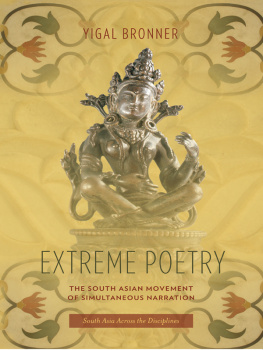
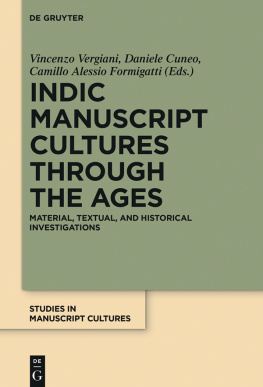
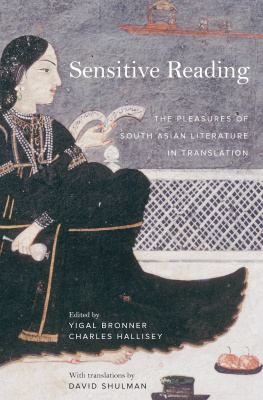
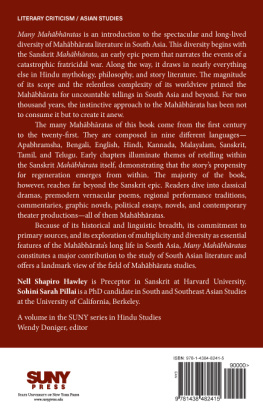
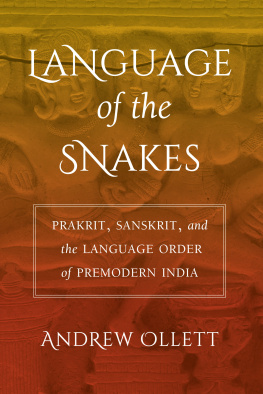
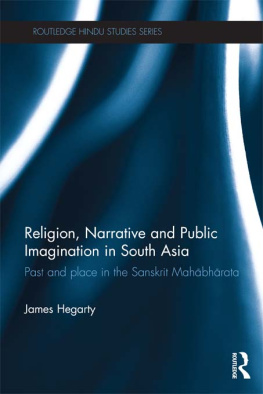
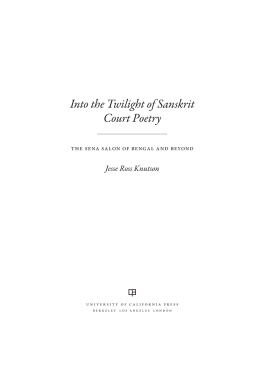
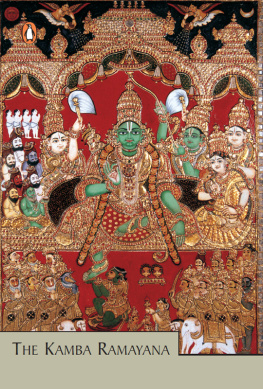
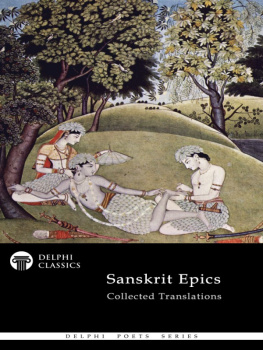
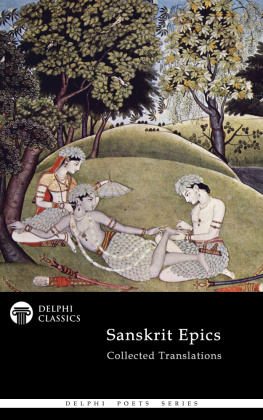

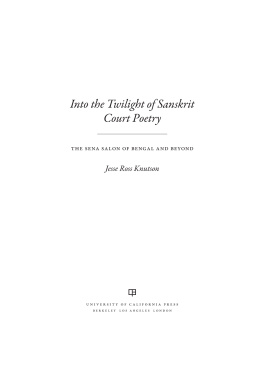
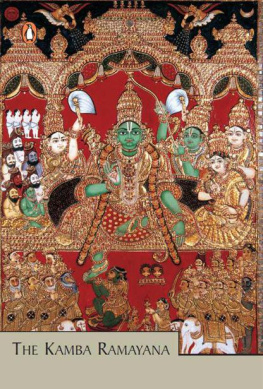



 m, p. 133, translation by Shamsur Rahman Faruqi
m, p. 133, translation by Shamsur Rahman Faruqi